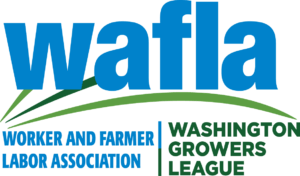Court orders changes in wage survey for Washington farmworkers
Court orders changes in wage survey for Washington farmworkers
By Don Jenkins at the Capital Press
The 9th U.S. Circuit Court of Appeals has ordered the U.S. Department of Labor to disregard minimum hourly wages guaranteed foreign farmworkers when calculating prevailing wages for Washington farmworkers.
A three-judge panel supported claims by the farmworker union Familias Unidas por la Justicia that jobs offering the minimum wage for H-2A workers skewed prevailing wage surveys.
The judges issued a brief memorandum May 24 overturning a lower-court ruling rather than an opinion explaining the decision.
The ruling was a step toward correcting faulty surveys, said Columbia Legal Services attorney Andrea Schmitt, who argued the case for Familias and the lead plaintiff, Yakima farmworker Ramon Torres Hernandez.
“The importance of this ruling is the court recognized the Department of Labor was utterly failing to live up to its mandate from Congress to protect local wages and working conditions,” she said.
WAFLA spokesman Scott Dilley said ignoring jobs that pay the H-2A hourly wage will make prevailing rate surveys less accurate. The wage has become the de facto minimum wage for domestic workers, too, he said.
“Fewer farms are even offering piece-rate jobs because the (H-2A wage) is higher than paying piece-rate,” Dilley said. “As costs go up, piece-rates are used less and less.”
WAFLA helps farms obtain foreign farmworkers and is not a party to the lawsuit.
Another suit filed
The Labor Department sets prevailing wages for tasks such as picking apples and cherries to prevent the H-2A program from suppressing wages for domestic workers.
The H-2A minimum wage does not corrupt prevailing rate surveys, Labor Department attorney John Drake told the justices at a hearing in Portland in April.
The minimum H-2A wage in Washington is $19.25 an hour. Farmers hiring H-2A workers must pay the minimum hourly wage or a prevailing piece-rate, which is better for the workers.
Familias argued that 2023 job listings offering only the hourly wage undercut wages for domestic workers.
The Labor Department argued listing the hourly wage was enough because piece-rate earnings for individuals are unknown when jobs are advertised.
The department also argued the issue was moot because the 2023 harvest was over. Between oral arguments in April and Friday’s decision, the department changed rules to require job openings mention piece-rates. The rule takes effect June 28.
In a court declaration, Hernandez, the lead plaintiff, said he has fared better under piece-rates, earning more than $30 an hour picking cherries and up to $35 an hour harvesting apples.
Familias recently filed another lawsuit in the U.S. District Court for Western Washington, alleging the Labor Department’s methodology for calculating prevailing piece-rates is faulty.
The department has not responded to the lawsuit.
